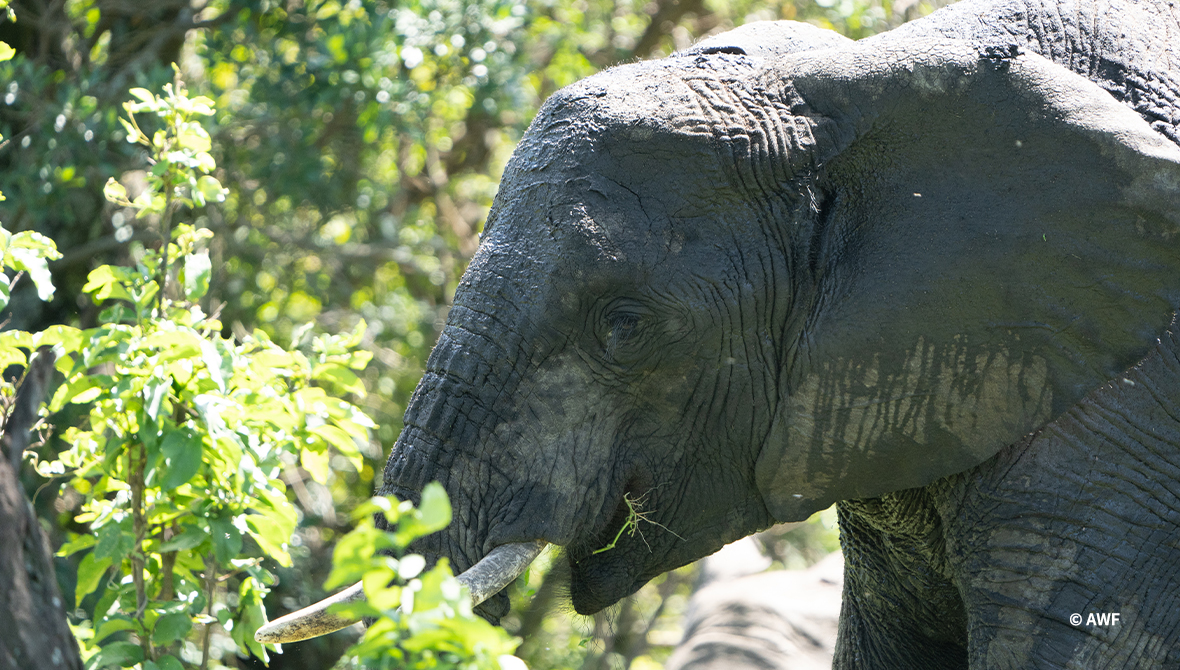Rebuilding and Maintaining Species Populations

AWF’s Species team works with national governments to assess the status of a species population, set a vision for the future of that population—including factors affecting its relationship with people and the land—and identify clear approaches to achieving that vision.
In 2022, that work resulted in the launch of Kenya’s first-ever white rhino conservation action plan, a strategy that calls for measures including improved grassland management, white rhino translocation, and building up national and international rhino tourism to ensure continued demographically and genetically healthy populations.
The Species team, which is led by our chief scientist Philip Muruthi, provided expert advice to formulate the national action plan for elephants in Kenya, a conservation and management plan for black rhinos in Zimbabwe, and a strategy for giraffes in the cross-border Tsavo-Mkomazi ecosystem.
Generally, plan implementation on the ground includes strategies such as:
- Counter-wildlife-trafficking integrated strategies that include canine unit deployment at smuggling hotspots and in the field, training in wildlife law enforcement, and support for judicial employees to ensure wildlife crime is appropriately prosecuted
- Mitigating human-wildlife conflict through training (rangers and community members) in prevention and response
- Securing habitat and improving management of protected areas and wildlife populations through capacity building and facilitating cross-border patrols. To assess the numbers and movements of wildlife, AWF trains rangers and scouts to use GIS tracking and monitoring technology and other tools.
This story features in the 2022 Annual Report. Read the full report.